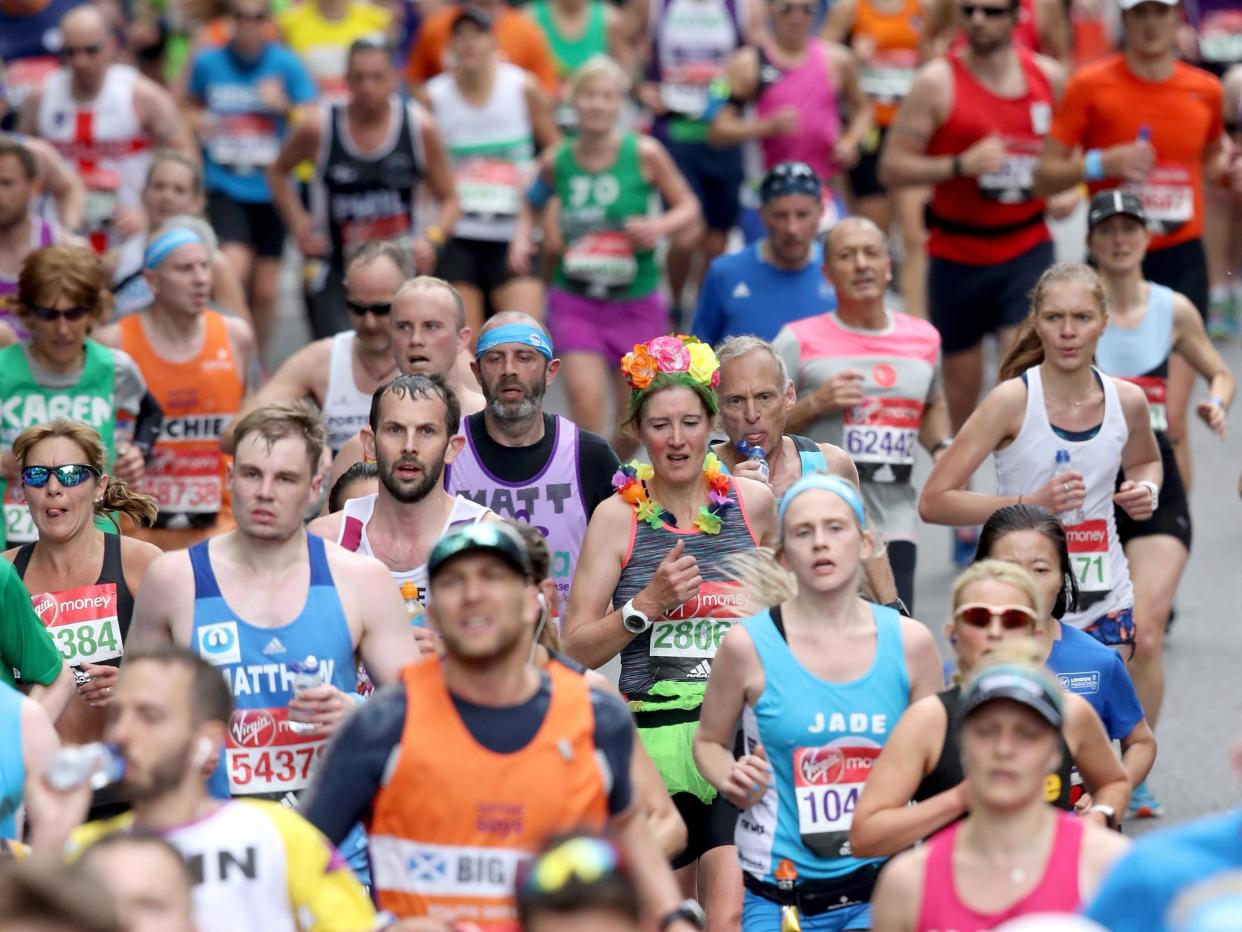The solitude of marathon running provides the perfect antidote to the modern world

I’m sitting in Parliament Square amid a crowd of thousands as the elite and wheelchair factions of the London Marathon 2017 flash past. Everyone is cheering; I’m beside a lady from Cats Protection who has handed out foam paws to my children to wave.
A mass choir of volunteers is singing gospel, wonderfully slow. It is sunny. Somewhere, a band is playing the theme from Chariots of Fire.
You could say the London Marathon is a uniquely British event, except a fortnight ago one could see the same scene at the Paris marathon – which also attracts 40,000 runners – and last week, it was Boston, again with almost identical elements – the elite, the wheelchairs, the masses doing it for Mum, for hospitals, for themselves. I know; I was one of them.
It’s a lonely place, the marathon, even though millions throng the streets and urge you to be strong (Boston), have courage (Paris) and dig deep (London). I think this loneliness is one of its chief attractions. It’s just you, your GPS tracker, and the mile counting. There is nothing else. No social media. No emails. No distractions from work, friends or family. Perhaps this is why the sudden engagement with a spectator at mile 16, offering you a slice of orange, has such an impact. Or, in my case in Boston, the hundreds of students at Wellesley College, mile 18, giving high fives and urging you to kiss them. Or the man at mile 24 who reminded me I was going to get a medal.
The medal is of course what you keep your sights on. How it will feel around your neck. There will be plenty of the 40,000 runners in London yesterday who will have burst into tears as the medal “hanger” does his or her job. It’s meaningless and worthless, but at the same time, priceless.
In this world where high flyers boast about watching TV on double speed because they are too busy to watch it at normal pace, or when even waiting for a bus or someone to pick up the phone is thought an irritant, the attraction of marathons is counter-intuitive. They require months of training, hours spent running alone, and the self-belief to line up on the start line looking down a road that is 26.2 miles long. And they are painful and mysterious. The anxiety of finishing is a particularly exquisite pain.
They are an ancient invention which act as a perfect antidote to our comfortable modern day life of certainty. As I write, the runners go past. I’m sitting at 25.5 miles. They have one kilometre left. The crowd is going mad. People are dancing in Parliament Square. It’s a strange, but wonderful phenomenon, the marathon.

 Yahoo News
Yahoo News 
